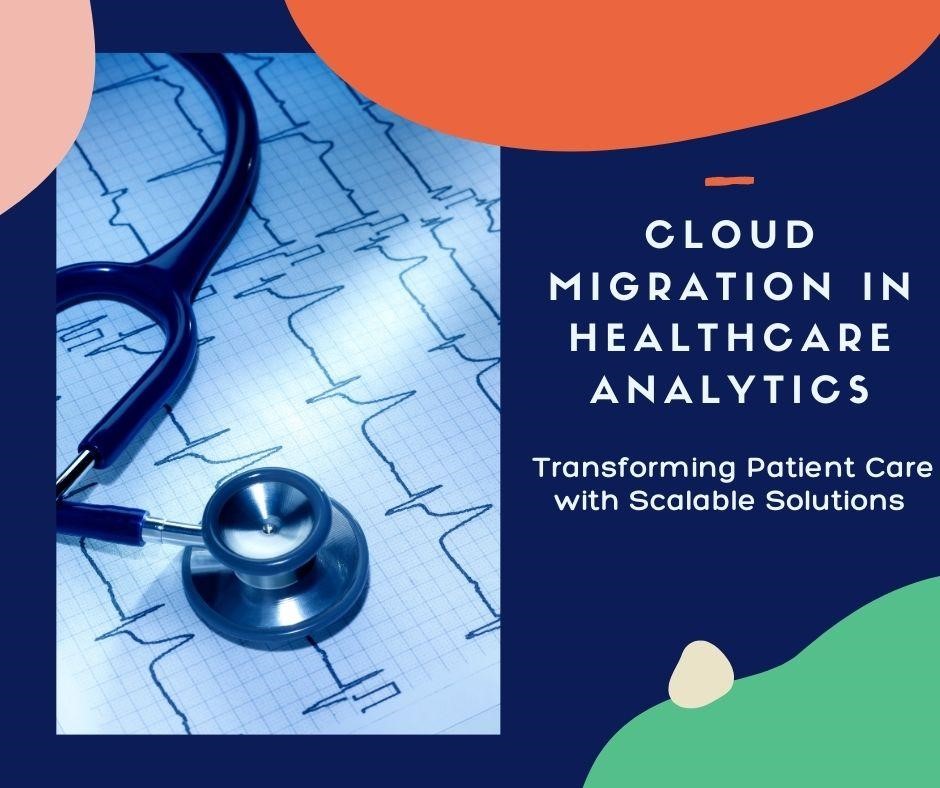Cloud migration is revolutionizing healthcare analytics by providing scalable solutions that enhance patient care and operational efficiency. Srinivas Reddy Komanpally, a leading expert in healthcare technology, explores how this shift to cloud-based systems offers unprecedented capabilities for data processing, personalized medicine, and real-time patient monitoring. This transformation marks a significant evolution in healthcare delivery, where data-driven insights and scalable infrastructure are driving better outcomes.
The Emergence of Cloud Migration in Healthcare
Cloud migration involves moving healthcare data and applications from on-premises systems to the cloud, driven by the need for cost efficiency, scalability, and better data integration. This shift allows healthcare organizations to consolidate data and leverage advanced analytics and machine learning, previously constrained by the high costs of on-site solutions.
Enhancing Operational Efficiency and Reducing Costs
Cloud migration enhances operational efficiency by automating routine data tasks, freeing healthcare professionals to focus on patient care. Its pay-as-you-go model reduces costs, eliminating large upfront investments. The ability to scale resources on demand ensures providers pay only for needed computing power, optimizing budgets for innovation.
Boosting Data Processing Capabilities
Cloud platforms offer high-performance computing resources that significantly enhance data processing capabilities in healthcare analytics. Complex analytical tasks, such as genomic sequencing and population health analysis, can be performed much faster than traditional on-premises systems. Moreover, cloud services provide tools specifically designed for big data analytics, enabling the processing and analysis of large volumes of structured and unstructured healthcare data. This real-time data ingestion and analysis capability is crucial for applications like remote patient monitoring and early warning systems, where timely insights can lead to improved patient outcomes.
Scalability and Flexibility: Autoscaling in Healthcare Analytics
Scalability and flexibility are fundamental features of cloud-based healthcare analytics. Autoscaling allows systems to automatically adjust computing resources based on workload demands, ensuring optimal performance even during periods of fluctuating data processing needs. This dynamic allocation of resources not only enhances performance by preventing slowdowns but also optimizes costs by scaling up or down based on actual usage. The ability to handle varying levels of data processing ensures that healthcare organizations can maintain consistent performance, thereby supporting critical applications such as real-time patient monitoring and population health analyses.
Leveraging Advanced Tools and Services
Cloud platforms offer a range of machine learning tools that are invaluable in healthcare analytics. Predictive modeling enables the development of models that forecast patient outcomes, disease progression, and hospital readmission risks. Natural Language Processing (NLP) can analyze unstructured clinical notes, extracting valuable insights from physician narratives. Additionally, advanced image analysis algorithms assist in interpreting medical images, aiding in diagnosis and treatment planning. These capabilities, combined with the scalability and flexibility of cloud platforms, are transforming healthcare data analysis by providing immediate, actionable insights.
Applications of Cloud-Based Analytics in Healthcare
Cloud-based healthcare analytics have diverse applications, from real-time data processing to the rapid deployment of new healthcare applications. Real-time analytics provide immediate insights crucial for emergency department management, disease outbreak monitoring, and clinical decision support. The cloud also facilitates the quick development and deployment of new healthcare applications, ensuring scalable testing and continuous integration and deployment processes. Moreover, cloud providers offer robust security measures, including encryption and access controls, to ensure secure data storage and management, addressing privacy concerns in handling sensitive patient information.
Challenges and Future Trends
While cloud migration offers numerous benefits, it also presents challenges related to data security, privacy, and regulatory compliance. Centralizing sensitive health data in cloud systems makes them attractive targets for cybercriminals, and ensuring compliance with regulations such as HIPAA is crucial. Despite these challenges, the future of cloud-based healthcare analytics looks promising. Emerging technologies such as edge computing, quantum computing, and blockchain are set to transform healthcare analytics further. Edge computing combines local devices with cloud analytics for faster, localized processing of health data, while blockchain enhances security and traceability.
In conclusion, Srinivas Reddy Komanpally emphasizes that cloud migration in healthcare analytics represents a transformative shift, offering scalable, flexible, and cost-effective solutions. The advancements in data processing, machine learning applications, and real-time patient monitoring are revolutionizing patient care and operational efficiency. While challenges persist, the potential benefits far outweigh these concerns, paving the way for a more efficient and patient-centric healthcare system. By embracing this technological shift, healthcare organizations are better positioned to meet the complex challenges of modern healthcare delivery, ultimately contributing to improved health outcomes.
